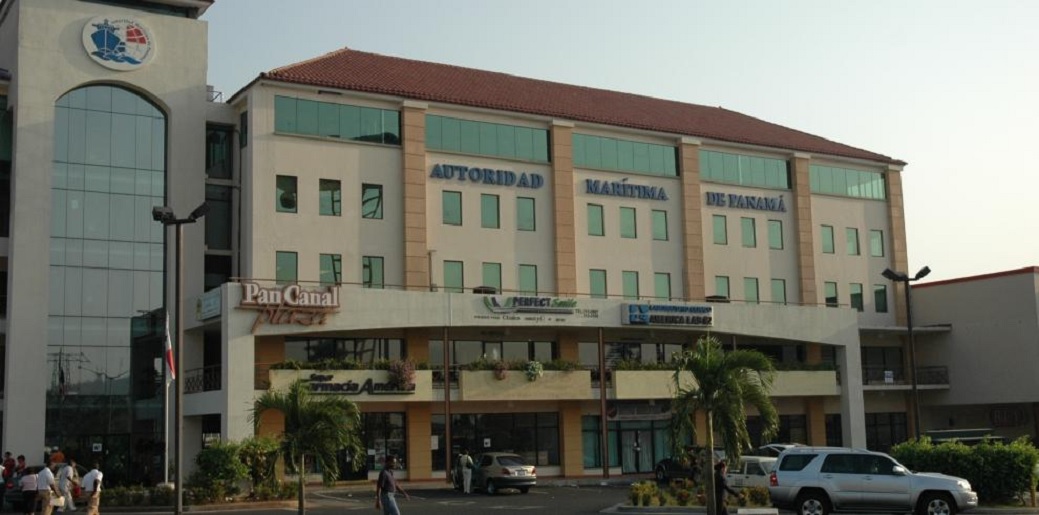The lack of response from the Panama Maritime Authority (AMP) to a request for information on the economic, technical, and environmental management of oil spills in the country was described as “unacceptable and worrying” by experts in maritime affairs.
It is a ten-point request to which the AMP did not respond a single word, even though it was made under the Transparency Law, as well as the regional agreement on access to information, public participation, and justice in environmental matters in Latin America and the Caribbean or “Escazu Agreement”, which is law in Panama.
The journalist of Bloomberg Línea and author of this article requested the list of spills detected or reported in the last ten years and documentation such as a simple copy of the minutes of the AMP’s board of directors, details of the mechanism for awarding the cleanup of spills and the AMP’s equipment to deal with them.

A simple copy of the documents was also requested, such as the technical reports of the spilled substances, reports showing the execution of the emergency fund for contamination, and the mechanism for awarding millions of dollars to the companies involved in the cleanup, among other details.
It would not be the first time that the AMP does not respond or, as has happened in other cases, avoids detailing the information under the argument that it would be confidential.
“It is unacceptable that the State does not report on its actions, as it is responsible to the citizens who elect its dignitaries to serve society,” said former Electoral Tribunal magistrate and former director of the AMP, Guillermo Márquez Amado to Bloomberg Línea.
In his opinion, not submitting the reports implies that they are not complying with their obligations and that they are also using the facts to conceal shameful illegal or immoral acts or that “among the measures they adopt, there are facts that are embarrassing”.
For its part, the Environmental Advocacy Center indicated that it is “extremely worrying” that the AMP repeatedly denies access to public information in its custody, which is essential to evaluate the impact of maritime activities on ecosystems and the environment.
The center, dedicated to the litigation of environmental issues, recalled that thanks to a lawsuit they filed with the Supreme Court, an article of the internal regulations that the AMP used as an obstacle to allow access was declared illegal.
However, “the institution continues to fail to make its information transparent. The authority must assume its status as an authority with environmental jurisdiction under the standards of the Escazú Agreement,” said its executive director, Lilian Guevara.
Because the AMP did not provide details, a complaint was filed with the Authority of Transparency and Access to Information (Antai). Once again, this did not admit the claim, nor did it communicate any steps to have the information answered.
This time the argument was that the complaint was filed with Antai out of time.
The lack of response in this matter, which has implied direct contracts for millions of dollars, was not surprising for the Promar Foundation since its president, Ricardo Wong, at the time requested details of one of these oil spills on the island of Taboga and due to the lack of response had to go to the Secretariat of Environmental Compliance of the Trade Promotion Agreement of the United States and Panama (Sala).
There is evidence, said Wong, that the oil spills and other substances are going unnoticed and that the AMP does not conduct the proper investigation or sanction the vessels for it.
Some 12,000 ships pass through Panama’s seas every year due to the existence of the interoceanic canal. Despite the existence of regulations, incidents can occur.
Still, the most worrying thing, according to Promar, is the local fleet that transfers substances and hydrocarbons, and the AMP’s capacity to monitor or contain a spill is not known.
Promar called on the public to be vigilant because contamination affects all people and ecosystems.
Therefore, another organization that raised its voice on the matter was Transparency International, Panama chapter, its executive director, Olga de Obaldía, emphasized that the Antai has the power to sanction officials who do not answer requests for information, as required by the Transparency Law, which requires 30 days.
With information from Bloomberg

